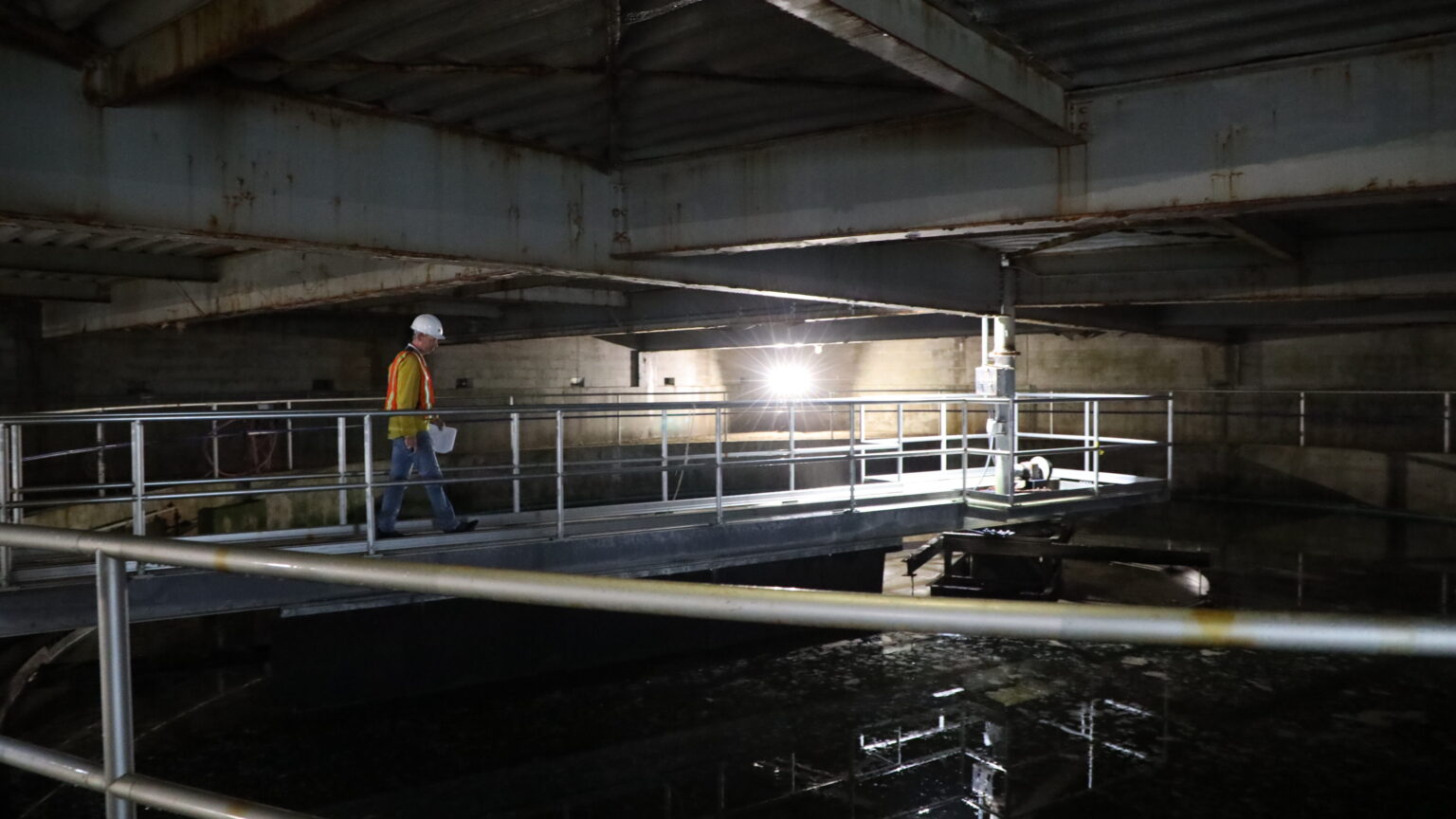Every time you wash your hands, take a bath or flush the toilet — your water and waste go somewhere. In Juneau, it goes to one of the sewage treatment plants run by the city.
Each day, the plants process nearly 3.3 million gallons of water. That equates to roughly 1.2 billion gallons every year. Denise Koch, the city’s director of Engineering and Public Works, said whether or not residents realize it, treatment plants play a critical role in the community.
“Almost everybody in this town flushes the toilet every day and that water comes to one of our wastewater treatment plants,” she said. “These are critical services for both public health and for maintaining environmental standards.”
This election, the city is asking voters for $10 million to cover the cost of replacing the roof and structural supports for a building at the Juneau Douglas Wastewater Treatment Plant that houses its wastewater clarifiers. Utility staff say the building needs critical repairs, but some critics argue the city shouldn’t go into debt to pay for it.
The plant is located in Thane and services that area along with downtown and Douglas. It was constructed in 1973 — more than 50 years ago — and it hasn’t received any major upgrades since then. On the outside, rust cakes bits of the roof and piping along the wall. Inside, some of the ceilings and beams are so rusted you could break pieces off with your hands. And light from outside seeps through rusted holes in the ceiling.
Brian McGuire is the utilities superintendent for the city. Last week, while walking through the building, he explained that wastewater clarifiers help ensure that the water treated at the plant meets environmental standards before it’s released into Gastineau Channel.
“What’s here is the second to last step that the water goes through before it goes out to the Gastineau Channel,” he said.
Clarifiers are large settling tanks that mechanically separate suspended solids from liquid water. The solids are dried and then shipped in containers to a landfill in Oregon.
“With water being such a part of what we do in this community, whether it’s fishing or whether it’s sailing, our community is really built around this,” he said. “And so I think this is a critical piece, this is the second to last piece that ensures that water is in the condition you want it to be when you’re out there fishing.”
McGuire said without the building undergoing these upgrades, there could big problems. If the building were to collapse, or something were to happen to the clarifiers, the city wouldn’t be able to meet environmental and public safety standards to discharge the water. It could also cause violations of the city’s wastewater permit.
But, while Koch and McGuire say the building is nearing the end of its designed lifespan and the need for replacement is time-sensitive, mayoral candidate Angela Rodell said she will be voting no. According to a poll conducted by KTOO, she was one of two Assembly candidates who said they would be voting against the measure.
“We’ve raised taxes significantly over the last four to five years, and I’m concerned that we’re not addressing ongoing maintenance needs when they happen, but rather it seems to get to a crisis point,” she said.
Koch said if the proposition doesn’t pass, the city is still committed to completing the project. But, because utilities are completely funded by ratepayers, the city may consider increasing rates to cover the cost of the project instead.
“If the bond passes and we get revenue for this project, it enables us to use the funding that we get from the ratepayers to work on other projects before they get pushed back so far that they become more dire,” she said.
The last time rates were increased was in July. They’ve gone up 2% each year since 2020.
The wastewater proposition is just one of three propositions on the ballot for this year’s municipal election. Ballots were sent to voters’ mailboxes last week. Election Day is Oct. 1.
Find more election coverage at ktoo.org/elections.

